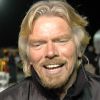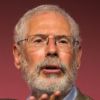19 China History Books That Unlock China's Past and Present
Recommended by Richard Branson, Hillary Clinton, and Barbara Demick for deep insights into China History






What if everything you thought you knew about China's history was just the surface? Understanding this vast nation's past isn’t just academic—it's essential for making sense of today's global shifts. China's story is tangled with dynasties, revolutions, and rapid modern transformations that ripple through politics, culture, and economics even now.
Experts like Richard Branson, who appreciates vivid personal histories like Wild Swans, and Barbara Demick, who values the deep political insights of The World Turned Upside Down, have found these books invaluable. Their endorsements come from real engagement—Branson's global ventures and Demick's frontline reporting both demand nuanced comprehension of China’s evolution.
While these expert-curated works provide proven frameworks, you might want a book tailored precisely to your background, interests, or goals. Consider creating a personalized China History book that builds on these insights for your unique learning journey.
Recommended by Hillary Clinton
Former US Secretary of State
“An inspiring tale of women who survived every kind of hardship, deprivation and political upheaval with their humanity intact.” (from Amazon)
by Jung Chang··You?
by Jung Chang··You?
During her academic journey from China to Britain, Jung Chang uncovered a deeply personal and historical narrative that shaped this book. She chronicles three generations of women in her family, navigating the upheavals of 20th-century China, from warlord conflicts through to the Cultural Revolution. You'll gain intimate perspectives on political turmoil interwoven with family resilience, understanding how large-scale events affected individuals. This book suits anyone eager to grasp modern Chinese history through the lens of personal experience rather than dry facts, especially those interested in women's roles during these turbulent times.
Recommended by Barbara Demick
Author, National Book Award Finalist, Former Beijing bureau chief
“Rather than being chastened, Yang has done it again . . . Yang’s book has no heroes, only swarms of combatants engaged in a “repetitive process in which the different sides took turns enjoying the upper hand and losing power, being honored and imprisoned, and purging and being purged”―an inevitable cycle, he believes, in a totalitarian system. Yang . . . benefited from the recent work of other undaunted chroniclers, whom he credits for many chilling new details about how the violence in Beijing spread to the countryside.” (from Amazon)
by Yang Jisheng, Stacy Mosher, Guo Jian··You?
by Yang Jisheng, Stacy Mosher, Guo Jian··You?
Yang Jisheng's deep experience as a former Xinhua journalist and deputy editor of Yanhuang Chunqiu informs this rigorous examination of the Cultural Revolution’s chaos and tragedy. You’ll gain a detailed understanding of the decade-long political upheaval, from Mao’s ultra-leftist policies to the devastating impact on Chinese society and culture. The book meticulously chronicles key events and power struggles, revealing how the repeated cycles of purging and power shifts shaped modern China. If you want to grasp the enduring consequences of Mao’s campaign and the complexities behind this turbulent era, this book offers a sobering, thoroughly researched perspective.
by TailoredRead AI·
This tailored book explores the rich tapestry of China’s dynasties, politics, and culture, weaving together centuries of history in a way that matches your background and goals. It reveals the complex interplay of imperial legacies, revolutionary shifts, and cultural continuities that have shaped China’s unique path. By focusing on your specific interests, this personalized guide clarifies intricate historical periods and key figures, making the vast narrative accessible and engaging. It offers an immersive journey through the political dynamics, social transformations, and cultural achievements that define China’s past and influence its present.
Recommended by Ryan Holiday
Media strategist and former marketing director
by Sun Tzu, Lionel Giles··You?
by Sun Tzu, Lionel Giles··You?
Unlike most China History books that focus narrowly on events or timelines, this work draws from the expertise of Sun Tzu, a legendary 6th-century Chinese general, to explore warfare as a complex interplay of psychology, politics, and strategy. You gain insight into timeless principles like winning without fighting, deception, and strategic planning that have influenced not just military commanders but modern leaders across industries. The bilingual edition includes both the original thirteen chapters and extensive commentary from traditional scholars, helping you understand the depth behind each aphorism. This book benefits those interested in military history, leadership strategy, and the broader cultural impact of ancient Chinese thought.
Recommended by Kyle Bass
Chief Investment Officer, Hayman Capital Management
“@Alam_Chaudry Roach would love to hand the keys to our future to the ccp. He is a joke. General Spalding has a book to release on October 1st titled “Stealth War”. After living in Beijing and being the US Defense Dept’s attaché to china, Spalding understands exactly what the ccp is doing to US” (from X)
by Robert Spalding··You?
by Robert Spalding··You?
What happens when decades of military and strategic expertise intersect with China's covert operations? Robert Spalding, a retired U.S. Air Force brigadier general and former China strategist, reveals how China has quietly compromised American institutions across multiple sectors. You’ll learn about China's infiltration tactics, from Confucius Institutes influencing universities to technology transfers masked as investments, all detailed with examples and agreements like the nuclear technology deal. This book suits anyone interested in understanding geopolitical strategies and national security vulnerabilities, especially those curious about the subtle but profound shifts in global power dynamics.
Recommended by Andrew Walder
Stanford University political sociologist
“'Skillfully unbundling forms of corruption and placing China’s 'Gilded Age' firmly in comparative and historical perspective, Yuen Yuen Ang brings a fresh and penetrating new perspective to one of the central puzzles of the current era - and reminds Americans of the deep-seated corruption of their own early period of rapid industrialization.'” (from Amazon)
by Yuen Yuen Ang··You?
by Yuen Yuen Ang··You?
What happens when a political economist with deep expertise in Chinese governance tackles corruption? Yuen Yuen Ang unpacks corruption’s complex role in China’s rapid growth, distinguishing four distinct types—including 'access money,' which paradoxically fosters investment while threatening political stability. Through detailed historical analysis and data, she reveals how corruption in China has evolved rather than disappeared, challenging the notion that corruption uniformly hinders development. Chapters exploring Xi Jinping's anti-corruption efforts illuminate potential future risks and shifts, making this book essential for understanding the nuanced interplay between economic boom and systemic corruption in modern China. If you want a clear lens on China’s paradox, Ang delivers.
by TailoredRead AI·
by TailoredRead AI·
This tailored book offers a meticulously crafted journey through China's most pivotal historical events, designed to engage your unique background and interests. It explores key moments shaping China's culture, politics, and society in a clear, approachable manner, making complex history accessible and compelling. The personalized narrative reveals how dynasties rose and fell, revolutions transformed the nation, and social movements reshaped its future, all focused on your specific learning goals. By concentrating on what matters most to you, this book delivers a focused, rich understanding of China's past that complements broader expert knowledge and deepens your connection to this fascinating history.
Recommended by Roy Hattersley
British historian and author
“Jung Chang and Jon Halliday have not, in the whole of their narrative, a good word to say about Mao. In a normal biography, such an unequivocal denunciation would be both suspect and tedious. But the clear scholarship, and careful notes, of The Unknown Story provoke another reaction. Mao Tse-Tung's evil, undoubted and well-documented, is unequalled throughout modern history.” (from Amazon)
by Jung Chang, Jon Halliday··You?
by Jung Chang, Jon Halliday··You?
What started as Jung Chang's quest to reveal the truth behind Mao Zedong's legacy became a meticulous decade-long investigation that reshaped modern understanding of Chinese history. Drawing on exclusive interviews with Mao’s inner circle and extensive archival research, the authors dismantle the idealized image of Mao, exposing his political machinations, alliances with Stalin, and the catastrophic human toll of his policies. You’ll come away with a nuanced grasp of Mao’s complex character and the devastating impact of his rule, especially chapters detailing the Long March myths and the Great Famine. This book suits anyone seeking a deep, unvarnished exploration of 20th-century China’s most controversial leader but may challenge those expecting a balanced biography.
by Jonathan Clements··You?
When Jonathan Clements first realized the depth of China's history was often overshadowed by simplified narratives, he set out to provide a richer, more nuanced account. This book takes you through 5,000 years of Chinese civilization, blending political upheavals like the Mongol invasions and Communist consolidation with cultural milestones such as the inventions of paper and gunpowder. You'll gain insights into lesser-known perspectives, especially the roles of women and modern challenges like climate change, which are often missing from traditional histories. If you want a layered understanding of how China transformed from ancient dynasties to a modern powerhouse, this book offers a clear, engaging path without getting lost in dry details.
Recommended by James Fallows
Author and former White House speechwriter
“The very hardest thing to convey about modern China is the combination of hope and despair, idealism and crassness, coordinated mass action and chaotic individual scheming, that you encounter each day. Evan Osnos has captured all parts of this disorienting 'reality,' but he has done so much more. Beautifully written, humane but critical-minded, funny on every page, Age of Ambition offers a better understanding of China's process of 'becoming' than most people could ever gain by living there. China veterans and amateurs alike will find it an illuminating and delightful read.” (from Amazon)
by Evan Osnos··You?
Drawing from years as The New Yorker's Beijing correspondent, Evan Osnos develops a nuanced portrait of China caught between sweeping economic ambition and strict political control. You learn how this tension shapes the lives of individuals striving for personal meaning amid the Communist Party's grip, with vivid stories illuminating clashes of faith, fortune, and truth. The book unpacks why young professionals, fluent in Western culture yet resistant to Western influence, embody a complex identity struggle. If you're looking to understand modern China beyond stereotypes, this book offers a detailed, narrative-driven exploration of its social and political transformation.
Recommended by Booklist
“This reasonably priced illustrated book deserves display.” (from Amazon)
by DK··You?
by DK··You?
DK's extensive experience in crafting visually rich educational books comes through powerfully in this detailed exploration of China's imperial past. You gain a vivid portrait of over 5,000 years of history, from prehistoric clans to the Qing dynasty, enriched with rarely seen artifacts and insightful chapters on cultural milestones like Confucianism and the silk trade. The book is tailored for those who want a deep understanding of China’s dynastic cycles, political transformations, and cultural achievements, all presented in a way that merges scholarly rigor with accessible narrative. Its visual approach helps you grasp complex historical shifts without getting lost in dense text.
Recommended by Kirkus Reviews
“Deeply researched and energetically written, this immersive account is a worthy introduction to the vast sweep of Chinese history and culture.” (from Amazon)
by Michael Wood··You?
Michael Wood combines his extensive experience as a historian and broadcaster to trace China’s vast history from its earliest dynasties to the modern era. You’ll find detailed explorations of pivotal moments like the Song dynasty’s scientific innovations and the Qing Empire’s cultural zenith, alongside fresh insights into post-1949 China and Xi Jinping’s leadership. This book suits anyone looking to understand China’s rise as a global power by grounding current developments in deep historical context, enriched by Wood’s travel reflections and recent archaeological findings. It doesn’t shy away from complex episodes such as the Opium Wars or the 1989 crisis, offering a grounded perspective without romanticizing the past.
by Patricia Buckley Ebrey··You?
by Patricia Buckley Ebrey··You?
Patricia Buckley Ebrey draws on decades of academic experience to present a richly detailed narrative of Chinese civilization, spanning from prehistoric eras to contemporary transformations. You’ll explore the nuances of political change, cultural developments, and social life, including chapters on environmental history and China’s global interactions. Notably, the expanded coverage of the Qing dynasty and the modern economic rise offers a balanced lens on China's evolving identity. This book suits anyone eager for a visually engaging, thorough grounding in China’s historical panorama, though it assumes some interest in broad historical sweeps over narrowly focused topics.
Recommended by Mariana Mazzucato
UCL professor, innovation institute director
“The book is an absolute must read x anyone interested in China. And the ideas behind its evolution. Brava @IsabellaMWeber !!!” (from X)
by Isabella M. Weber··You?
by Isabella M. Weber··You?
Isabella M. Weber's background as an economics professor and China specialist informs this exploration of China's unique reform path after Mao. You learn how China avoided the disastrous shock therapy approach favored elsewhere, instead using planned economy institutions to foster gradual marketization. The book offers detailed insights into the fierce debates among reformers in the 1980s, illuminated by interviews and unpublished documents. It benefits those interested in economic history, policy design, and the foundations of China's current state-market model. Readers gain a nuanced understanding of the intellectual and institutional struggles that shaped China's rise without wholesale neoliberal assimilation.
Recommended by Netiwit Chotiphatphaisal
Thai student activist and president of Smopolscicu
“@JimMillward Thank you, Prof. It is such a great read for a beginner like me. Wonder if you would write a book for general audience based on this new paradigm?” (from X)
by Klaus Mühlhahn··You?
by Klaus Mühlhahn··You?
Klaus Mühlhahn, drawing from his extensive expertise as a professor and president at Zeppelin University, maps China's tumultuous journey from Qing dynasty dominance to its modern global stature under Xi Jinping. His book dissects how China’s resilience stems not merely from recent political shifts but from centuries of adaptive strategies amid internal rebellions and foreign pressures. You’ll gain insight into the complex interplay of social networks, economic innovation, and governance reforms that underpinned China’s survival through crises such as the Opium Wars and Taiping Rebellion. This narrative suits anyone eager to understand China’s historical continuity beyond simplified Cold War narratives, revealing the nuanced forces shaping its current trajectory.
Recommended by John Birmingham
Author and political commentator
“@WarintheFuture @Dr_M_Davis @HalBrands @Audible_AU I love this deeply disturbing book because it confirms all my priors.” (from X)
by Michael Beckley, Hal Brands··You?
by Michael Beckley, Hal Brands··You?
What if the sharpest phase of U.S.-China rivalry isn’t a marathon but a sprint? Michael Beckley and Hal Brands challenge the conventional timeline by arguing that the 2020s represent a critical, high-stakes decade where tensions could escalate dramatically. You’ll gain a nuanced understanding of China’s geopolitical ambitions, military buildup, and the ideological clash at play, grounded in historical examples of rising powers. The book is especially insightful if you want to grasp near-term strategic challenges and the complex dynamics driving Sino-American conflict today. It’s a clear-eyed analysis that suits policymakers, strategists, and anyone seeking a deeper perspective on global power shifts.
Recommended by Joshua M. Brown
Financial advisor and CEO of Ritholtz Wealth Management
“It’s book 3 on my summer reading list and the revelations are eye-popping. Dikotter was among the first to gain access to formerly hidden government reports from the era.” (from X)
by Frank Dikötter··You?
Drawing from his extensive academic career and access to newly released Chinese Communist Party archives, Frank Dikötter unveils the grim realities of Mao's Great Famine. You gain a detailed understanding of how political decisions and brutal policies led to catastrophic human and environmental consequences, with chapters revealing the interplay of power struggles and everyday suffering. This book is particularly suited for those seeking a sober, well-documented account of mid-20th century China, offering insights into both high-level politics and grassroots impact. It reframes the narrative of the Great Leap Forward beyond propaganda, challenging readers to confront this tragic chapter in China’s history without romanticism.
Recommended by Michael Loewe
University Lecturer in Chinese Studies, University of Cambridge
“A solid, clearly written and up-to-date account of China's dynastic history, taking note of recent research, and with attention to cultural developments and economic practice. An accessible read, even for first-comers to this highly complex subject; this is an excellent introduction to China that instructors will welcome and students will enjoy.” (from Amazon)
by Harold M. Tanner··You?
Harold M. Tanner's decades of academic research and global perspective culminate in this volume tracing China's transformation from the Qing dynasty through to the People's Republic era. You gain detailed insights into political shifts, economic reforms, and cultural evolutions, with chapters that clarify complex events like the Opium Wars and the 20th-century revolutions. The book suits anyone seeking a nuanced understanding of China's recent history, especially students and instructors who appreciate balanced narratives backed by extensive notes and maps. Tanner's approach neither oversimplifies nor overwhelms, providing a measured account that invites critical engagement with China's modern development.
Recommended by Amit Paranjape
Technology and history enthusiast, Pune-based
“@StratNewsGlobal @nitingokhale @VGokhale59 Looking forward. Finished reading about 2/3rd of the book...great read!” (from X)
by Vijay Gokhale··You?
by Vijay Gokhale··You?
Drawing from his extensive diplomatic career, Vijay Gokhale offers an insider's perspective on the 1989 Tiananmen Square protests that shaped modern China. You gain a detailed understanding of the political tensions and the Chinese Communist Party’s response, framed through his firsthand experiences as a young diplomat in Beijing. The book traces how economic reforms were prioritized over democratic freedoms, revealing the complex trade-offs faced by Chinese citizens. Chapter insights illuminate the interplay between state control and societal aspirations, making it particularly insightful for those interested in China's political evolution and international relations.
by Sun Tzu, Thomas Huynh, Marc Benioff, Thomas Cleary··You?
by Sun Tzu, Thomas Huynh, Marc Benioff, Thomas Cleary··You?
What happens when ancient military strategy meets spiritual insight? This edition of The Art of War, guided by Thomas Huynh’s thoughtful commentary, reveals how Sun Tzu’s principles extend beyond battlefield tactics to everyday conflicts in work, family, and self-management. You’ll learn how to prevent disputes before they arise, approach adversaries with intelligence and benevolence, and master emotional control to influence outcomes positively. The facing-page notes unpack subtle nuances, making the text accessible even if you’ve never studied it before. This book suits those interested in both historical strategy and practical conflict resolution, though it may be less relevant if you seek purely historical analysis without applied philosophy.
Recommended by Rui
China tech investor and analyst
“@rob_schmitz Thanks so much Rob for your book! What a great read. I wonder if you'd be up for doing a Twitter thread or blog post on those updates you've kept up with sometime ... so intrigued and I'm sure I'm not only one! You did such a great job writing about them I feel attached to them!” (from X)
After years reporting on China’s rapid transformation, Rob Schmitz developed a nuanced view of modern Shanghai that he shares through deeply personal stories along a single street. You’ll gain insight into the everyday hopes and struggles of ordinary people navigating the city’s dizzying growth—from Zhao’s factory-to-shopkeeper journey to CK’s search for meaning beyond ambition. The book offers a window into generational shifts and the complex social fabric behind China’s urban boom, illustrated by vivid characters and unexpected historical connections like a mysterious box of family letters. If you want to understand China beyond headlines and stereotypes, this book draws you into its human heart.
Get Your Personal China History Guide Fast ✨
Stop guessing—get targeted China History insights without reading dozens of books.
Trusted by China History enthusiasts and scholars worldwide
Conclusion
This collection of 19 books reveals China’s history as a complex interplay of personal stories, political upheaval, economic ingenuity, and cultural depth. Whether you’re drawn to intimate memoirs like Wild Swans or strategic analyses such as Stealth War, these works cover broad ground yet converge on a profound understanding of China’s past and present.
If you’re navigating political history, start with Mao and The World Turned Upside Down. For economic and social narratives, China’s Gilded Age and Age of Ambition offer rich insights. Rapid learners might pair The Art of War with Making China Modern to grasp strategy and transformation efficiently.
Alternatively, you can create a personalized China History book to bridge the gap between broad principles and your specific interests. These books can help accelerate your understanding of one of the world's most influential civilizations.
Frequently Asked Questions
I'm overwhelmed by choice – which book should I start with?
Start with A Brief History of China by Jonathan Clements for a clear, engaging overview that sets the stage for deeper dives. It balances ancient dynasties and modern transformations, giving you essential context before exploring specialized topics.
Are these books too advanced for someone new to China History?
Not at all. Books like Imperial China and The Story of China offer accessible introductions, while others provide detailed analysis for more experienced readers. You can tailor your choices to your comfort level and interests.
What's the best order to read these books?
Begin with broad historical surveys such as A Brief History of China and The Cambridge Illustrated History of China. Then explore focused topics like Mao's era, economic reforms, and contemporary social changes for a layered understanding.
Should I start with the newest book or a classic?
It depends on your goals. Newer books like Stealth War offer current geopolitical insights, while classics like The Art of War provide timeless strategic perspectives. Combining both enriches your grasp of China's past and present.
Do I really need to read all of these, or can I just pick one?
You can absolutely pick one based on your interest—whether it’s political history, cultural narratives, or strategy. Each book stands on its own, but together they offer a fuller picture of China's multifaceted history.
How can a personalized China History book complement these expert recommendations?
Personalized books tailor expert knowledge to your specific background, interests, and goals, making complex history more relevant and actionable. They bridge broad scholarship with your unique learning needs. Try creating your own China History book for focused insights.
📚 Love this book list?
Help fellow book lovers discover great books, share this curated list with others!
Related Articles You May Like
Explore more curated book recommendations


















